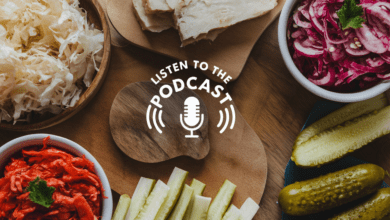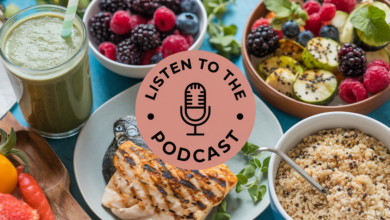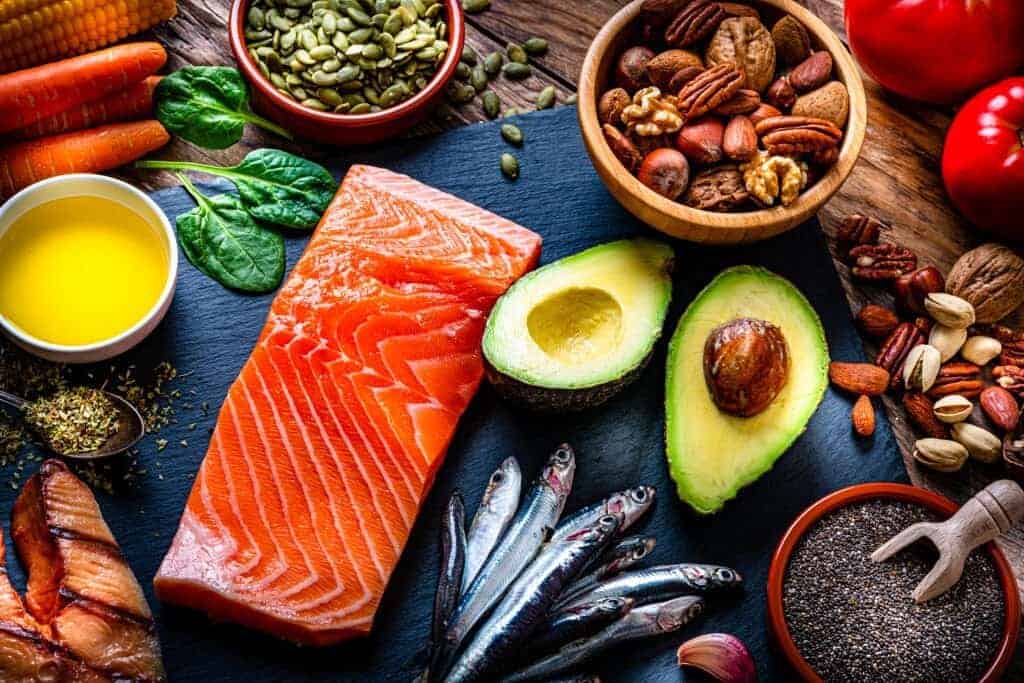The Comprehensive Guide to Modern Diets: Unlocking the Secrets of Nutrition and Health

Understanding nutrition and the wide array of modern diets can feel like navigating a labyrinth. In fact, the U.S. National Library of Medicine states that poor diet is one of the leading causes of health problems worldwide.
This comprehensive guide to modern diets will demystify these popular dietary regimes, showcasing their advantages and potential pitfalls, to help you choose what’s right for your body and lifestyle.
Ready to embark on this gastronomical journey?
Comprehensive Guide to Modern Diets: Key Takeaways
- Modern diets are special ways of eating that can make you healthier. They include the Mediterranean, Paleo, Atkins, Low-carb diets, and more.
- The Mediterranean Diet uses lots of olive oil and herbs, which helps keep your heart healthy while reducing risks like high sugar levels or hypertension.
- Eating the way our ancestors did in Paleolithic times is what makes up a Paleo Diet. It focuses on whole foods and keeps inflammation down in your body.
- The Atkins Diet reduces carbs for weight loss using a four-step plan but might bring health issues if followed long-term.
- A Gluten Free Diet excludes grains harmful to celiac disease sufferers such as wheat, barley, and rye but includes alternatives like buckwheat or soy.
- Vegetarianism centres around excluding meat products, aiding towards various health-related benefits alongside ethical reasons regarding animal cruelty concerns.
- Vegan Diets remove all animal-based items from food consumption, so care needs to be exercised to ensure no nutrient deficiencies occur due to the limited variety available through simple plant-based food sourcing.
- To choose what kind of modern diet suits you best, think about your personal health objectives, then consult medically trained professionals to help tweak current dietary habits into versions aligning with your desired goals within their comprehensive guide!
Understanding Modern Diets
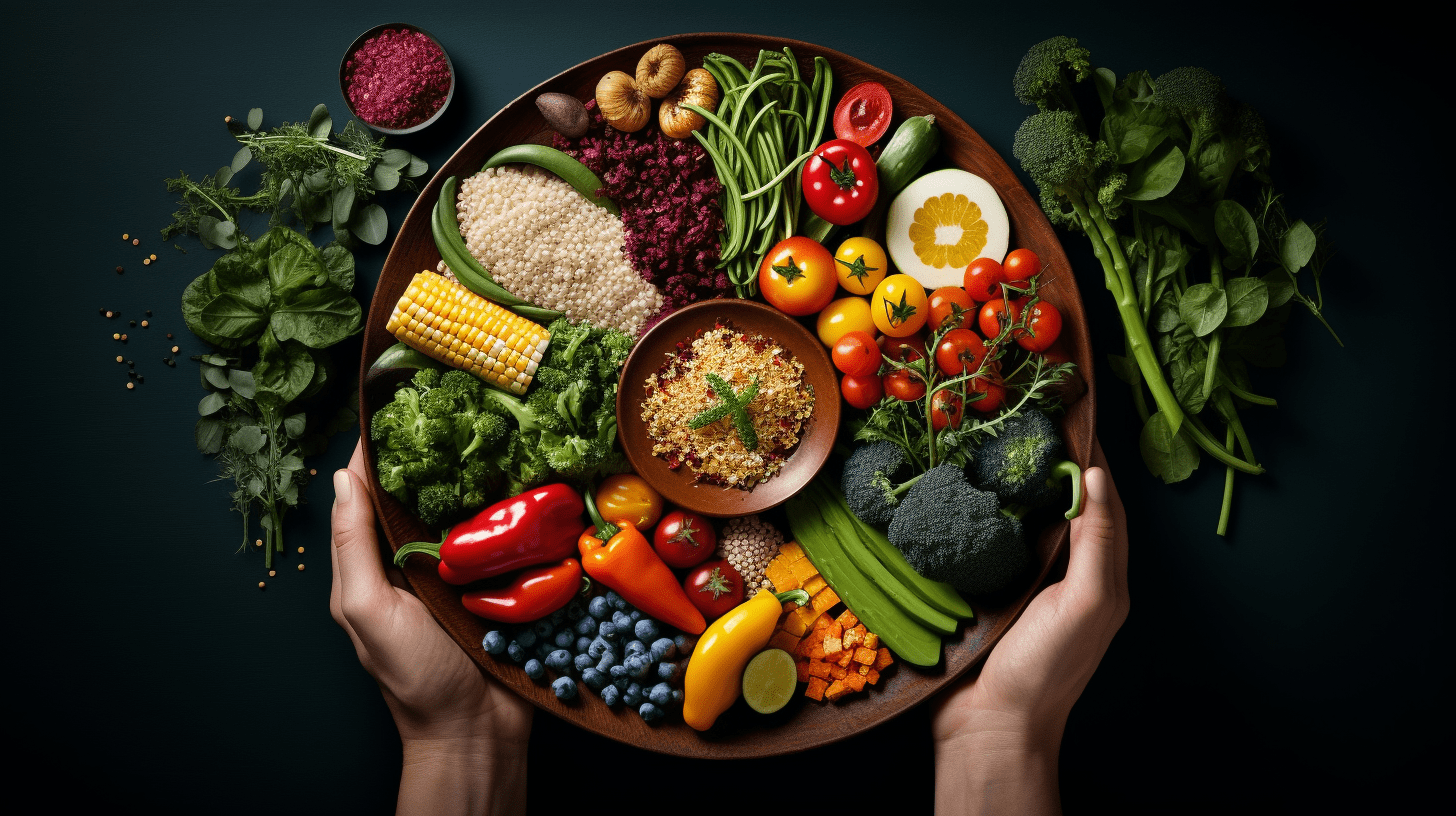
Modern diets are increasingly becoming a topic of interest due to their direct correlation with health and well-being. They encompass various nutritional plans developed from scientific research, traditions, cultural influences, as well as personal choice, or health conditions.
With an array of choices available, such as the Atkins Diet, Mediterranean Diet, and Paleo diet among others; each offering unique dietary practices suited for distinct health goals.
A perfect example is the Mediterranean diet which advocates heavily for olive oil consumption rich in monounsaturated fatty acids – known contributors towards reducing heart problems and cardio-vascular diseases.
It also plays a significant role in maintaining stable blood sugar levels and lowering cholesterol. The Paleo diet, on the other hand, tunes our eating habits back to non-refined foods like those consumed by our ancestors during the Paleolithic era, thereby preventing disorders linked to modern processed foods.
The overarching goal of these diets is to promote healthier lifestyles and minimize the chances of chronic illnesses associated with poor dietary habits, such as hypertension and obesity.
The Most Popular Modern Diets Explained
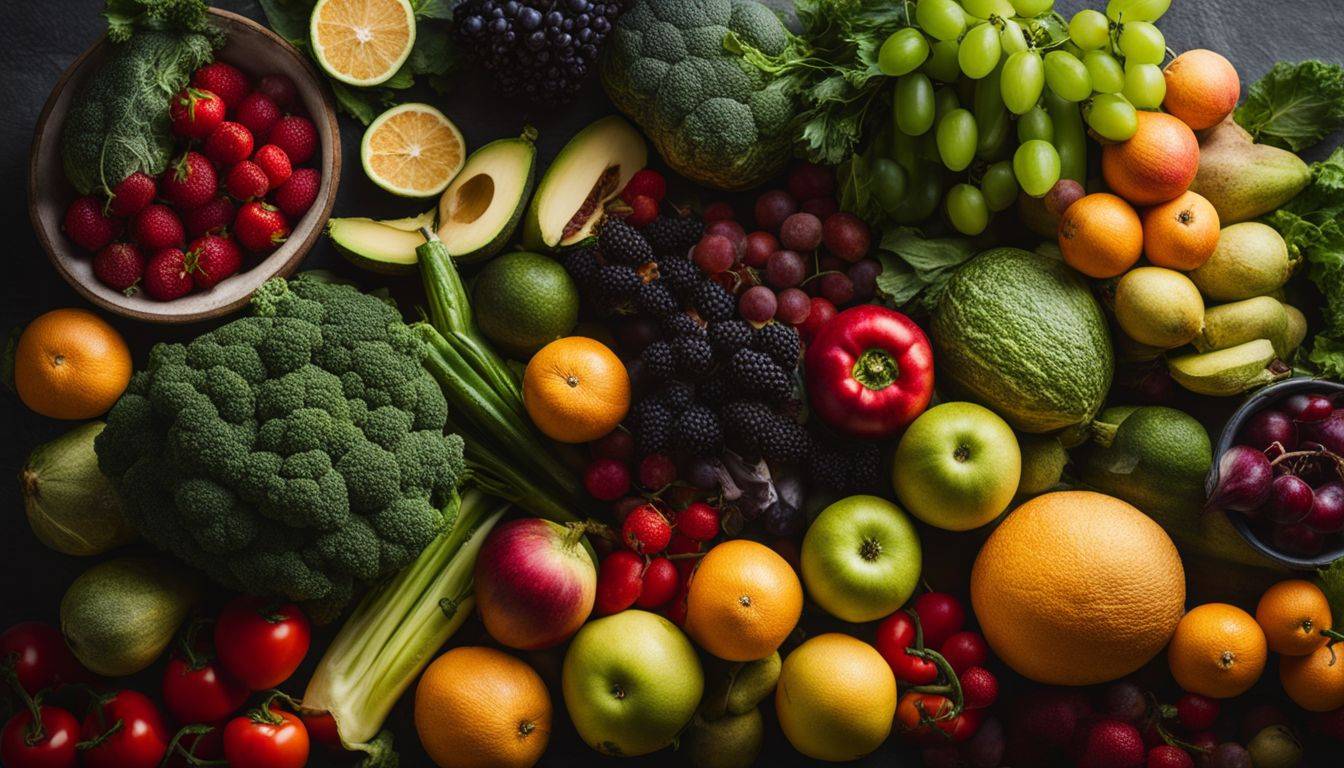
In this section, we delve into the details of popular modern diets such as The Mediterranean Diet, which champions olive oil and herbs, The Paleo Diet, which harks back to our ancestral dietary patterns, and the controversial Atkins diet, which emphasizes high protein.
We further explore low carb diets like the South Beach Diet, studied the highly restrictive Ketogenic or Keto Diet and analysed Gluten Free Diets aimed at those facing gluten hypersensitivity issues.
Vegetarian and Vegan Diets also find a place in our exploration for their dedicated exclusion of meat products with varied levels of strictness.
The Mediterranean Diet

The Mediterranean Diet revolves around heart-healthy foods commonly used in Mediterranean regions. This includes the lavish use of olive oil rich in monounsaturated fatty acids, which contributes to lower levels of bad cholesterol and a reduction in cardio-vascular disease incidence.
Abundant in fruits, vegetables, whole grains, legumes, and fish, this diet encourages enjoyment of natural flavors.
This eating style not only offers flavorful dishes but also provides numerous health benefits supported by the U.S. National Library of Medicine’s findings. Proper adherence may result in stable blood sugar level maintenance, minimizing health risks such as hypertension or other heart-related issues.
The wide incorporation of unique herbs like rosemary or oregano heightens not just gastronomic pleasure but elevates nutrition value as well for the vibrant lifestyle synonymous with Mediterranean communities.
The Paleo Diet

Often known as the “caveman diet,” the Paleo Diet mimics the eating habits of our ancestors in Paleolithic times. This approach precludes the consumption of processed, refined foods and emphasizes natural, whole food items.
Nutrient-rich choices like lean meats, fish, fruits, and vegetables, along with nuts and seeds, represent integral parts of this diet plan. Many individuals have reported weight loss benefits along with improvements in blood sugar levels while on a Paleo Diet.
Beyond promoting healthier insides, it also aids in curbing inflammation within the body. Turning back to more primal ways of nourishing ourselves emerges as a key ethos behind adopting a Paleo lifestyle.
The Atkins Diet

The Atkins Diet, brought to prominence in 1972, operates on the premise of carb reduction for weight loss. This diet involves four stages designed not just for immediate weight loss but also changes to long-term eating habits.
Your daily carb intake takes a dramatic dip down to about 20g during the induction phase of the diet. Many have credited it with rapid weight loss and noticeable improvements in both blood cholesterol and blood sugar levels.
However, caution must be exercised, as prolonged adherence can lead to significant health problems and an increased mortality risk, according to studies.
The Low Carb Diet
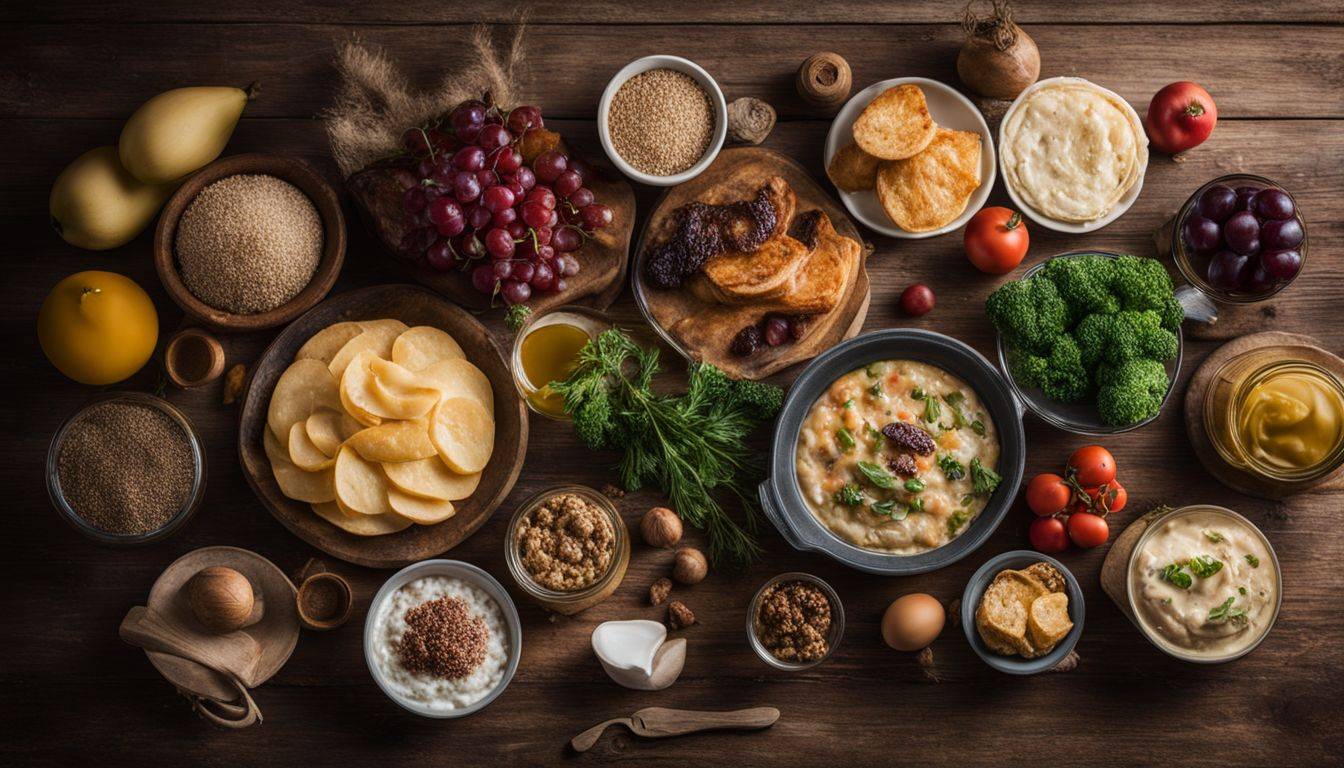
The Low Carb Diet focuses on minimizing carbohydrates while increasing the intake of proteins and fats. It has gained popularity today as a promising way to lose weight and improve overall health.
The principle behind this diet is that, by reducing carb intake, you encourage your body to burn fats for fuel instead of sugars. Variations such as the famous Atkins Diet or South Beach Diet fall under this umbrella of low-carb diets and offer structured plans for achieving these dietary changes.
This shift in dietary composition can bring about significant reductions in blood sugar levels, leading to stabilized insulin release and ultimately supporting consistent energy utilization throughout the day.
A key facet of succeeding with a low-carb diet involves choosing high-quality protein sources like lean meats while also focusing on sourcing healthier unsaturated fats from foods like avocados, nuts, and seeds rather than saturated or trans-fats found in processed foods.
The Keto Diet

The Keto Diet focuses on consuming minimal carbohydrates, providing a distinctive approach to weight loss and health enhancement. In this diet regime, most of the energy comes from fats and a lesser portion from proteins.
Carbs intake is incredibly limited, which in turn leads to rapid weight loss as the body goes into a metabolic state called ketosis.
This ketogenic process makes your body much more efficient at burning fat for energy. It further transforms stored fat into ketones that efficiently supply power to our brain! However, it’s important to note that while many people have found success with The Keto Diet for short-term weight loss goals, the diet can place substantial stress on one’s organs due to its high-fat content and imbalance nature.
The Gluten Free Diet

People with celiac disease or gluten intolerance rely on the Gluten Free Diet as a form of treatment. They remove grains like wheat, barley, and rye from their diet, which contain gluten – a protein that causes harm to their small intestine.
Yet this doesn’t limit them to only meat and vegetables. Abundant gluten-free alternatives exist, such as buckwheat, soy, and quinoa. The elimination of gluten-rich foods also aligns with principles followed in other popular diets, like the Paleo diet.
However, care is necessary if combining it with others like Atkins; originally focused on low-carb eating rather than being strictly gluten-free.
The Vegetarian Diet

The Vegetarian Diet is a choice embraced by many, often due to health, environmental, or ethical reasons. Advocated by the likes of John Harvey Kellogg and the Seventh-Day Adventist Church, this diet excludes meat but allows for variations like Ovo-vegetarians who consume eggs and Lacto-vegetarians who consume dairy products.
The National Institute of Health underscores the importance of eating balanced meals under such diets to attain an adequate amount of dietary protein, calcium, iron, as well as vitamin B12 that could otherwise be missed out on due to animal produce exclusion in vegetarian diets.
However daunting it might seem initially with these nutrient considerations involved along with the lifestyle adjustments required, multiple resources are available today to help ease into it.
This includes educational enrichments from books written by nutrition experts that focus on sustenance through sustainable food choices, ensuring healthier relationships with food, which can significantly smooth-en transition period towards vegetarianism while also instilling a sense of empowerment in choosing what goes onto our plates!
The Vegan Diet

The Vegan Diet eliminates all forms of animal products, aligning with both health and environmental conservation principles. Characterized by the exclusion of meat, dairy, eggs, and other animal-related items from one’s food intake, it often necessitates careful planning or supplementation to avoid nutrient deficiencies.
The National Health Organization validates this diet for its potential to reduce saturated fat and sugar intake when properly managed. Some vegans might replace animal-source foods with direct equivalents rich in key nutrients like Omega-3 fatty acids, which they can derive from sources such as marine algae.
It is vital to maintain a balanced approach while adhering to the vegan lifestyle adjustments to ensure diverse nutrient consumption.
The Science Behind Modern Diets

Scientists analyse modern diets through rigorous research and clinical trials. Nutrition science reveals that the Mediterranean diet, abundant in olive oil and herbs, can help stabilize blood sugar levels due to its high concentration of monounsaturated fatty acids.
Such a nutritional profile also shows promising aspects for combating cardiovascular disease. Similarly, Paleo followers exploit the benefits of consuming non-refined foods akin to those eaten during the Paleolithic era, designed based on geographic and seasonal variation.
Data links this style of eating to lower rates of obesity and hypertension.
A different approach is taken by those following Atkins or low-carb diets that primarily monitor carbs rather than calorie intake. Research indicates these have potential benefits for weight loss but are under investigation for long-term effects they might induce, like lipid metabolism abnormalities or heart health problems.
The ketogenic diet fuels your body with ketones instead of glucose, which directly influence gluconeogenesis – an essential metabolic process that helps maintain specific organ functionalities.
In contrast, gluten-free regimes cater to people suffering from celiac disease; however, there are numerous claims about expanded roles beyond just managing this condition.
Vegetarianism seeks balance between evolution-backed need for nutrients found mainly animal-based products while respecting personal beliefs on animal rights or environmental concerns – diverse strategies include ovo-vegetarians who consume eggs but no dairy products , lacto-vegetarians living off plants plus dairy foodstuffs, amongst other groups .
Each modern diet reflects dietary principles tied intimately with their expected health outcomes.
It’s crucial readers take time to understand the scientific reasoning behind each methodology to ensure they make informed decisions about adopting these regimens into their lifestyles, as these don’t only impact physical conditions but possess profound psychological implications too, taking shape both within short spans and across longer timescales.
How to Choose the Right Modern Diet for You

Taking into account your health goals, current eating habits and getting professional advice are essential steps towards selecting the most suitable modern diet that caters to your individual needs.
Discover more about how you can personalize and optimize nutrition in our comprehensive guide!
Consider Your Health Goals with a Modern Diet

Choosing the best diet hinges on your personal health objectives. If losing weight is a high priority, diets with lower carbohydrate intake, like Atkins or keto, could be beneficial options.
If you’re looking for nutritional balance and heart benefits, the Mediterranean diet may be appealing due to its inclusiveness of various healthy foods such as vegetables, fruits, and oils. Which are known to contribute to stabilizing blood sugar levels and lowering cholesterol counts.
Alternatively, if managing symptoms of celiac disease or gluten hypersensitivity is essential for you, adopting a gluten-free diet would be useful. Considering your individual needs will surely guide you in finding the most suitable modern diet.
Analyse Your Current Eating Habits

To begin any kind of diet, it’s essential to first get a clear understanding of your current eating habits. Dive deep into every detail: the types and amounts of food you consume, the timing of your meals and snacks, and how often you indulge in treats or fast foods.
This self-analysis will help reveal patterns that may be detrimental to your health goals. You could use a food diary or an app to record what you eat daily – this forms an effective strategy for visualizing your dietary routines.
Cutting out bad habits is just as important as implementing new ones when adopting a modern diet.
Consult with a Nutritionist or Dietitian
Choosing the right diet can be a complex process. It’s not just about losing weight, it’s also about improving overall health and maintaining it over the long term. A professional nutritionist or dietitian holds expert knowledge in food and nutrition.
They can understand your body’s unique requirements and help you snowball this into a personalized meal plan.
Their assessments are rooted in understanding your medical conditions, lifestyle habits, exercise routines, allergies, or dietary constraints, if any. With their support, you have someone to ensure that sustainable changes are made to your eating patterns without risking nutrient deficiency or other health issues.
This one-on-one experience makes sticking with a healthy habit easier since it is specifically tailored according to individual needs.
The Role of Exercise in Modern Diets

Exercise bolsters the effectiveness of modern diets and aids in achieving health goals.
– Regular physical activity can boost metabolism, helping our bodies to burn more calories.
– Exercise increases sensitivity to insulin, which assists in maintaining a healthy blood sugar level.
– Combining a high-protein diet with strength training promotes muscle growth and fat loss.
– Engaging in frequent exercise counters the sedentary lifestyle common today,
limiting risks associated with obesity and heart disease.
– Cardiovascular workouts such as running or cycling are proven to improve heart health when paired with diets low in saturated fats and cholesterol.
– Physical activities like yoga or Pilates can reduce stress levels, preventing comfort eating that often contradicts dietary plans.
– Flexibility exercises support digestion; practices such as certain yoga poses stimulate bowel functions thereby aiding detoxification processes essential for weight management diets like Keto.
-Strength-based exercises increase body’s requirement for energy leading to better utilization of nutrients from meals within Paleo or Atkins diet protocols.
-Finally, regular exercise encourages discipline – a critical aspect involved while adhering to any dietary regimes making fitness routines an invaluable addition alongside most contemporary meal plans.
The Impact of Modern Diets on Overall Health

Modern diets continue to alter our health on multiple fronts. Consuming saturated fats and sugars in excess, as seen in many current eating habits, often leads to obesity and hypertension.
Case in point, the Atkins diet promotes rapid weight loss but can result in long-term cardiovascular complications and other health problems.
In a stark contrast, hunter-gatherer societies that followed a Paleo-like diet didn’t worry about high blood pressure or heart disease. They mainly consumed non-refined foods – essentially highlighting how dietary choices directly impact overall wellness levels.
Following a gluten-free plan helps those with celiac disease manage their condition by avoiding potentially harmful ingredients. Translating this awareness into everyday food choices can drastically improve one’s overall quality of life.
Even though modern diets like Keto offer quick weight loss solutions, they may put undue stress on your body; hence mindful adoption is necessary based upon individual health conditions and objectives.
Benefits of Reading About Nutrition

Delving into nutrition literature can amplify your understanding of food and its effects on the body, empowering you to make informed dietary decisions that support your health and wellness.
Discover more insights as we unfold these benefits in detail.
Improved Knowledge and Understanding
Getting to know about nutrition opens a window of knowledge, letting you see the benefits and drawbacks of different modern diets. You gain insight into how each diet plan can impact your health.
This understanding steers you in making informed decisions on what dietary plans may best suit your unique nutritional needs.
Having improved level of understanding gives you power over your body; it helps you engage intelligently with your environment. An awareness about nutrients enables one to choose healthy food accurately, strengthening overall physical wellbeing against diseases or potential complications.
It is advisable that reading habitually should be as part of modern dieting endeavor since comprehension assures us safety from deplorable consequences unknowingly consented unto by mere guesses in eating choices.
Better Decision-Making Abilities
Understanding nutrition brings about better decision-making abilities when it comes to food choices. You may find yourself second-guessing your previous habits, noticing nutritional gaps you hadn’t seen before.
Importantly, sound knowledge can guide you towards a healthier lifestyle by helping you make informed choices in the supermarket or restaurant menu selections. Consequently, embracing an understanding of nutrition becomes not mere interest but a practical tool perfectly suited for daily life application.
It dispels widespread myths and misinformation about food while enlightening consumers on healthy eating practices that fulfil dietary recommendations rather than falling prey to fad diets often touted by the media.
Enhanced Sense of Empowerment
Understanding modern diets and nutrition brings an enhanced sense of empowerment. You begin to manage your own health consciously, rather than being swayed by the latest health fads or driven by lack of knowledge.
Daily meal decisions become easier as you base them on genuine nutritional needs rather than craving-driven choices. Feelings of control over your wellbeing skyrocket when navigating food aisles becomes less about confusion and more about enlightened options selection.
As a result, handling social dining situations without risking dietary goals shifts from impossible to achievable as well! This newfound personal power fuels consistent progress towards optimal health outcomes – another exciting manifestation of that amazing feeling we call empowerment!
Top Recommended Books for Healthy Eating

Enhance your understanding of nutrition and gain useful tips on maintaining a healthy diet through these recommended books:
“Food Rules: An Eater’s Manual” for simple, intuitive guidelines;
“The Well Plated Cookbook: Fast, Healthy Recipes You’ll Want to Eat” for delightful and wholesome meals ideas;
“Diet for a Hot Planet: The Climate Crisis at the End of Your Fork and What You Can Do About It” helps you understand the environmental impact of our food choices; lastly,
“Intuitive Eating for Every Day: 365 Daily Practices & Inspirations to Rediscover the Pleasures of Eating” helps inspire conscious eating habits that go beyond calorie counting.
Food Rules: An Eater’s Manual
“Food Rules: An Eater’s Manual” stands as invaluable reading for those keen to master the art of healthy eating. This book, packed with evidence-based nutrition information, marks its place among the top books recommended for health-conscious readers.
It unfolds a comprehensive guide not only about what to eat but also how to make food choices that enhance your overall wellness.
The allure of “Food Rules: An Eater’s Manual” lies in its simplicity and practical approach towards diet management. With lucid language and clear-cut rules, it serves as an effective eater’s manual for both beginners and veterans on the journey towards better personal health.
The book goes beyond conventional diet recommendations; it instils healthier habits & nurtures a more mindful relationship with food.
The Well Plated Cookbook: Fast, Healthy Recipes You’ll Want to Eat
The Well Plated Cookbook: Fast, Healthy Recipes You’ll Want to Eat simplifies healthy eating with time-saving tips and manageable ingredients. It takes the guesswork out of home cooking by offering meals that are nourishing, palate-pleasing, and readily accessible.
Ranging from easy weekday dinners to festive gathering feasts, every recipe incorporates wholesome ingredients for well-rounded nutrition. This cookbook elevates everyday dishes into delectable health-conscious treats you cannot resist.
Proving that quick and flavorsome homemade meals are always better than prepackaged fare or takeout orders is its ultimate goal! So grab your copy on Amazon today and start plating up your kitchen journey towards a healthier lifestyle.
Diet for a Hot Planet: The Climate Crisis at the End of Your Fork and What You Can Do About It
“Diet for a Hot Planet: The Climate Crisis at the End of Your Fork and What You Can Do About It” explores an often overlooked aspect of our diets – their impact on the climate.
Making slight changes to what we eat, such as reducing meat intake or choosing locally-sourced foods, contributes significantly towards mitigating climate change.
This groundbreaking book unravels how everyday food choices are exacerbating greenhouse gas emissions and promoting environmental degradation. However, it doesn’t stop there; practical solutions are offered for those who wish to adopt sustainable eating habits.
Anyone interested in aligning personal health with planet’s well-being can find insights on decreasing their carbon footprint through dietary adjustments in this comprehensive guide.
Intuitive Eating for Every Day: 365 Daily Practices & Inspirations to Rediscover the Pleasures of Eating
“Intuitive Eating for Every Day: 365 Daily Practices & Inspirations to Rediscover the Pleasures of Eating” offers daily guidance on how to develop healthier food habits and encourage pleasure in eating.
The book helps the reader understand their body’s natural hunger cues, allowing them to foster a more productive relationship with food and move away from restrictive diets.
Each practice included encourages mindfulness within our everyday lives, helping us redefine our understanding of nutrition and its effect on well-being.
Conclusion
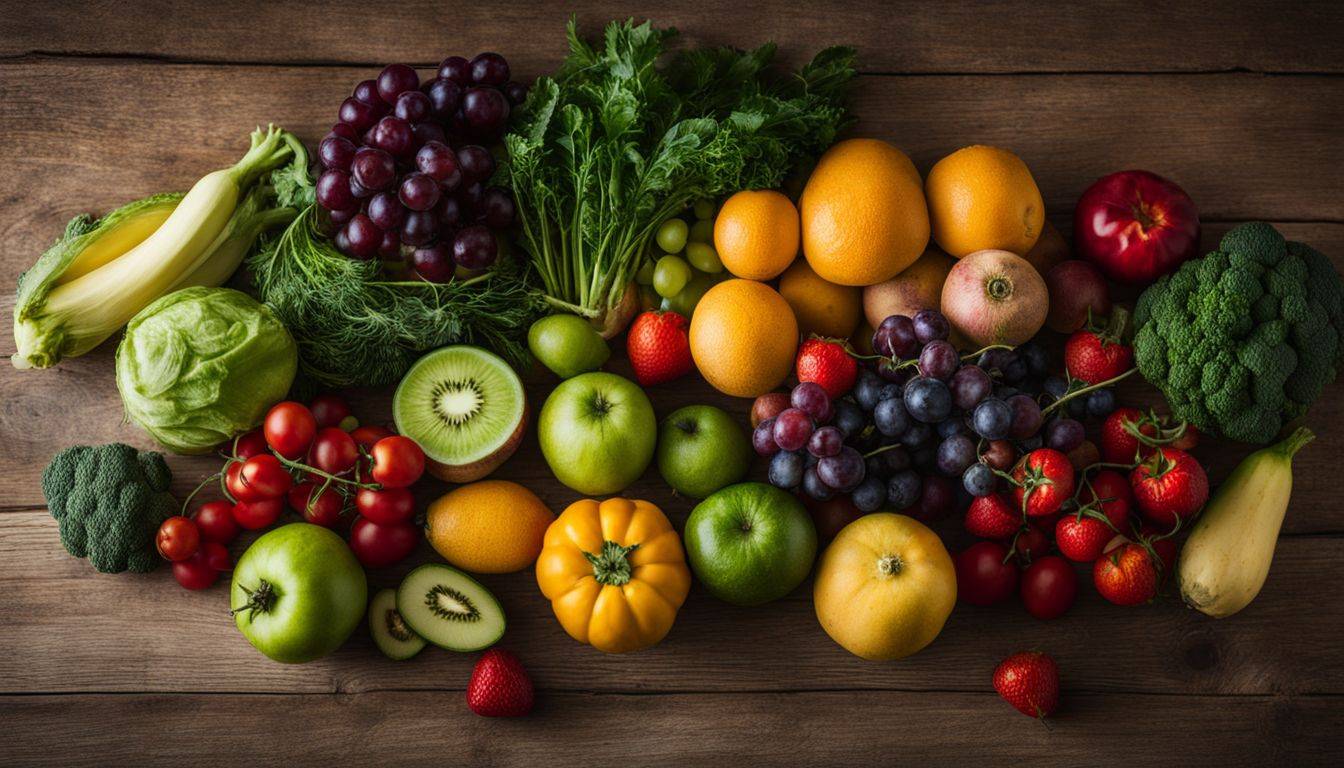
Making informed decisions about your diet significantly improves well-being and health. Every individual has unique nutritional needs, so choose a modern diet that aligns with your lifestyle and objectives.
Explore various diets, learn the science behind them, and transform your life through conscientious eating. Remember to consult with nutrition experts when making major dietary changes for holistic guidance.
Comprehensive Guide to Modern Diets: FAQs
1. What are modern diets?
Modern diets include a wide range of eating plans, such as the Paleo diet pyramid, Dr. Atkins’ Diet Revolution plan, and The South Beach Diet by Arthur Agatston.
2. Can modern diets cause health issues like heart arrhythmias or kidney damage?
Yes, some high-protein foods in large amounts may lead to heart arrhythmias or even kidney damage if consumed excessively.
3. Are all modern diets based on animal-based foods and refined carbs?
Not all! Many comprehensive guides show options for balancing animal products exclusion with nutritional equivalents, along with the reduction of saturated fat and sugars for maintaining blood cholesterol levels.
4. How does geographic variation affect dietary choices?
Dietary choices often vary significantly depending on geographic location where hunting-and-gathering is still practiced by hunter-gatherers.
Indigenous peoples of the Amazon in lowland Bolivia, following traditional food traditions from rain forest diets that are decently healthy despite lacking key nutrients found in typical Western Style Diets..
5. Is tracking carbohydrate intake necessary for every kind of modern diet?
While carbs tracking isn’t necessary for every diet, it plays an integral role when adhering to plans focusing on ketone bodies production that keep track on glycaemic index task involved highly processed foods such as Kellogg’s Corn Flakes avoidance might be required.
Other articles that may be of interest.
Disclaimer – About Us – Terms & Conditions – Contact Us – Privacy Policy

